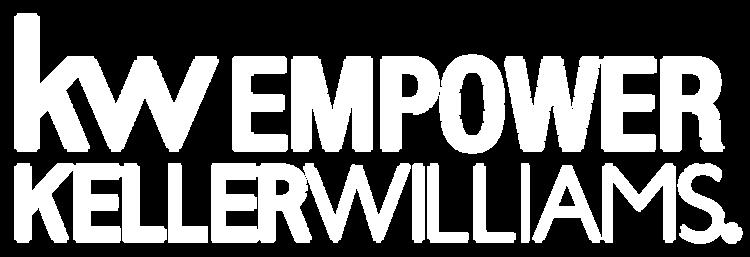







Known for making the home buying experience a seamless process, Andrew Pulini serves Philadelphia homeowners and future homeowners. Raised in Philadelphia - I understand the intangible benefits of life in the city and the market dynamics of each part of the city.
I graduated from Temple University’s Fox School of Business in 2012 and have been committed to building a world-class living experience for all of my clients since. My support doesn’t just stop at the closing table - I provide my clients with invites to VIP events in Philadelphia and have a large network of professional service providers to assist with all of your homeownership needs - from stagers, painters, designers, to handymen and much more. Over the past decade, I have build a team of trusted professional real estate advisors to support each stage of the home buying process
My Mission
My mission is simple yet hear and brotherly love to the hom understand the fears and ins while buying their first home driven to support with empa unwavering support.
Our goal is to ensure every h empowered and informed th turning their dreams of owni with hope and joy
Andrew Pulini(215)805-7035
Andrew@kwempower com
@Andrew KWE andrewpulini.kw.com





From the moment you choose us as your Realtor®, we pledge to provide the exceptional service you deserve Our team is committed to delivering the highest standards of professional and personal care D E D I C A T E D S E R V I C E
When repairs or price changes are necessary, whether you're a buyer or a seller, we will guide you through the process. We manage negotiations, schedule necessary inspections and repairs, and handle any difficult conversations, so you don't have to.
As your Realtor®, representing your best interests is my top priority With in-depth knowledge of the local market and an understanding of how various amenities impact home value, I will ensure we assess all benefits and determine the price accordingly. O N Y O U R S I D E

Communication is everything to us We will discuss with you exactly how our team works and what you can expect We will communicate regularly and you’ll know everything that’s going on as soon as we know it
We will work diligently to protect your interests and address any issues that arise, aiming to make the process as enjoyable and stress-free as possible.

The team over here at KW Empower is a tight-knit family. By combining our passion for real estate, we've formed a strong team that enhances our ability to serve our clients. Our whole team was born and raised in the Philadelphia area, giving us an intimate understanding of this amazing city and its diverse neighborhoods.
Our commitment to each other reflects our commitment to our clients: delivering the utmost in integrity, prioritizing yo d d l ki l ti R l t t has transformed our family's lives in ame for you




One on One Consultations: We start with a personalized consultation to understand your goals, preferences, and budget During this meeting, we discuss current market trends, financing options, and the home-buying process, ensuring you have a clear understanding from the outset
Comprehensive Market Analysis: Our team provides detailed market reports and neighborhood insights to help you make informed decisions. We cover everything from recent sales data and property values to upcoming developments and community amenities
Offers and Negotiations: Our team is very experienced in crafting the right offer to secure your dream home During this process - we will articualte all of our strategies used when dealing with the listing agent. There is an art-form to aligning the sellers wants and buyers offer to create a win win for all.
 ANDREW PULINI TORI HARKINS
FRANK GENZANO JOHN PAUL HELK
ANDREW PULINI TORI HARKINS
FRANK GENZANO JOHN PAUL HELK
2023 HOME SALES
150
AVERAGE AGENT: 3
2023 AVERAGE HOME PRICE
$550K
PHILADELPHIA AVERAGE: $295K
2023 AVERAGE DAYS ON MARKET
OUR TEAM: 6
AVERAGE AGENT: 25

2023 LIST TO SALE PRICE %
OUR TEAM: 102% WORKWITHTHE
MLS AVERAGE: 95%






Sure, there's being financially ready to buy a house, but are you emotionally ready? Whether it's your first home or a starter home, purchasing property entails significant financial commitment and roots being planted.
Consider your future goals over the next few years Are you purchasing with a partner? If so, are your financial priorities aligned? Is there a possibility of relocating for work? Are you planning to start a family?
These overarching questions can influence whether now is the ideal time to buy a home, adding to the considerations beyond just financial aspects.
Income Stability: Ensure you have steady source of income
Credit Score: Determines type of loan and credit score
Consider Your Future Plans: Where do you see yourself in the next 5 to 10 years? Do you anticipate growth in your family?

Savings: For down payments and closing costs
Debt-to-Income Ratio: How much of your income goes to debt?
Budgeting: Property taxes, insurance maintenance and utilities
Down Payment: While the traditional down payment is 20%, many lenders offer loans with as little as 3% down for qualified buyers
Closing Costs: These can range from 3% to 6% of the home's purchase price and include fees for appraisals, title insurance, and loan origination
Monthly Payments: Use mortgage calculators to estimate your monthly mortgage payments, including principal, interest, taxes, and insurance

Relocation:Assess the liklihood you would have to move for work or any other reasons
Home Maintenance: Owning a home requires time and effort for maintenance and repairs Are you ready to take on these responsibilities or have the means to hire professionals
Community: Evaluate factors like proximity to work, schools, amenities, and community vibe.
Debt-to-income ratio (DTI) is crucial for mortgage eligibility. It shows how much of your income goes to debt payments, helping lenders determine your manageable mortgage debt
Calculate DTI by dividing total monthly debt by gross monthly income. For example, $2,000 in monthly debts and $6,000 income equals a 33% DTI Lenders often use credit report debts for this
Lenders also consider the housing expense ratio, comparing your monthly housing payment to your income. For example, a $1,200 payment and $6,000 income equal a 20% ratio.
Review your DTI before applying for a loan Most lenders prefer a DTI of 43% or less.
More on next page
Your credit score significantly impacts the loans and interest rates available to you, indicating to lenders the level of risk associated with granting you a loan.
Improving your credit score and reducing debt can greatly benefit you as you prepare for a mortgage A higher score opens doors to better loan options and lower interest rates. Your credit score is influenced by several factors:
Payment history
Amount of debt owed
Length of credit history
Types of credit used
New credit applications
To qualify for a home loan, most lenders typically require a credit score of at least 620 Scores above 720 generally qualify for the best loan terms available.



“Working with Andrew and the KW Empower team was by far the best possible experience I could have imagined going into the home buying process. The whole team was proactive, communicative and personable. Andrew and the team made the whole process extremely comfortable"

“Working with Andrew and the KW Empower team was by far the best possible experience I could have imagined going into the home buying process. The whole team was proactive, communicative and personable. Andrew and the team made the whole process extremely comfortable"

Once you've decided to buy a home, the next step is to establish a budget. Start by calculating your Debt-to-Income (DTI) ratio, which involves assessing your current debts and income to determine a feasible monthly mortgage payment.
Owning a home comes with additional expenses that renters don't typically face, such as property taxes and homeowners insurance Be sure to factor these costs into your budget to accurately determine how much you can afford
Mortgage lenders prioritize DTI as a key factor in loan approval because it helps predict the risk associated with mortgage applications Understanding your DTI ratio is essential for navigating the home buying process effectively
Step 1: Add Up All Of Your Monthly Debts
Your debt payments could include:
Monthly rent or house payments
Monthly child support payments or alimony
Student loan payments
Car payments
Monthly credit card minimum payments
Any other debts you might have
You don’t need to add in:
Grocery bills
Utility bills
Taxes
Step 2: Divide Your Monthly Debts By Your Monthly Gross Income
Next, do a simple calculation.
For example, let’s say your debts add up to $2,000 per month. If your monthly gross income (your before-tax income) is $6,000 per month
tThen your DTI ratio is 0 33, or 33%


There are various methods to save for your home purchase, such as investing and maintaining savings accounts. If family members are willing to contribute, gift money can be used towards your down payment (ensure to provide your lender with a gift letter).
But how much should you save before purchasing a home? Consider the significant expenses associated with the purchase and plan accordingly

Your down payment is a significant initial payment towards buying a home, often required by lenders to reduce their risk if the borrower defaults on the mortgage.
Contrary to popular belief, a 20% down payment is not always necessary, which can be unrealistic for many first-time buyers Fortunately, there are multiple options for those who can't afford a 20% down payment Conventional loans can be obtained with as little as 3% down, while Federal Housing Administration (FHA) loans require a minimum of 3 5% Additionally, Department of Veterans Affairs (VA) and United States Department of Agriculture (USDA) loans allow eligible borrowers to put down 0%
However, making a larger down payment has its advantages It typically expands your mortgage choices, lowers your monthly payment, and secures a more favorable interest rate. Plus, putting down at least 20% on a conventional loan eliminates the need for private mortgage insurance (PMI).
You'll also need to save money to cover closing costs, which are the fees associated with obtaining your loan The amount you pay for closing costs can vary based on several factors, but it's wise to budget for approximately 3% to 6% of the home's purchase price For example, on a $200,000 home, you might expect to pay between $6,000 and $12,000 in closing costs.
The specific closing costs you incur will depend on factors such as your loan type, lender, and location Typical expenses include appraisal fees and title insurance. If you opt for a government-backed loan, you may also need to pay an upfront insurance premium or funding fee
$200,000 Home Example x 3% to 6% of the Purchase Price =
$6,000 to $12,000 Closing Costs


When you're ready to begin house hunting, obtaining a mortgage preapproval is essential. This involves applying with your lender, who will assess your credit, assets, and income to provide a preapproval letter stating the approved amount. You can then share this letter with your real estate agent to focus your search within your budget
The preapproval process typically includes detailing your income, assets, and the prospective home details. It serves as a crucial step akin to a mortgage trial run, allowing you to make serious offers on homes Preapprovals are typically valid for 90 days and can be renewed if needed
It's important to note that while preapproval sets expectations, it doesn't guarantee final mortgage approval or interest rates. After obtaining preapproval, refrain from opening new credit lines or making significant debt payments that could impact your credit score
Getting preapproved provides a clear financial picture as your lender gains comprehensive information about your finances, including a hard inquiry on your credit report. Applying with multiple lenders simultaneously within a short period will only count as a single hard pull, minimizing its impact on your credit score





Conventional loans are mortgage loans offered by private lenders and are not backed by the government The most prevalent types are those backed by Fannie Mae or Freddie Mac, often referred to as conforming loans Conventional loans constitute the majority of mortgages in the U.S. They remain a popular choice among home buyers, allowing for down payments as low as 3%.
FHA loans, backed by the Federal Housing Administration, are less risky for lenders because they are insured by the government in case of borrower default This insurance allows FHA loans to have more lenient credit score requirements You can secure an FHA loan with a down payment as low as 3.5%.
FHA loans, supported by the Federal Housing Administration, pose less risk for lenders since they are insured by the government in case of borrower default Consequently, FHA loans typically have more relaxed credit score requirements, allowing you to qualify with a down payment as low as 3.5%.

Good credit
Proven steady income (2+ years)
Option for indivisuals with lower credit scores Homeowner occupant only (no investors) Stringent home inspections
Condos must be FHA approved
Veterans and spouses only
Home condition requirement

“Working with Andrew and the KW Empower team was by far the best possible experience I could have imagined going into the home buying process. The whole team was proactive, communicative and personable. Andrew and the team made the whole process extremely comfortable"


Create a checklist of essential features for your future home. Consider the number of bedrooms and bathrooms required, and determine your ideal amount of living space. Evaluate the desired size of the kitchen, and assess whether ample closet and cabinet space is necessary Consider whether a spacious yard is needed for children and/or pets to play
In addition to home features, think about the neighborhood you prefer, the quality of local schools, commute times to work, and nearby shopping amenities. Factor in safety considerations and the rate of home appreciation in the area when making your decision.
Here are some tips for evaluating homes...
1) Pay attention to the details:
Test the plumbing
Check the electrical system
Open and close windows and doors to ensure they function properly
2) Access the neighborhood and surroundings:
Observe if neighboring homes are well maintained.
Evaluate street traffic.
Consider proximity to schools, shopping centers, restaurants, and parks.

1. Legal Name

2 Email Address
3. Which best describes you?
First Time Home Buyer
Looking to Downsize
Looking for a larger home Previously owned a home
7 What is your timeline for finding your next home? Immediately Within 3 months Within 6 months ____ Within 1 year
8. Are you the sole purchaser or is someone else involved?
9. What kind of property are you looking for? ____ Single-family home Condo Apartment
10. How many bedrooms?
4. What is your current ownership status?
Renting my Home Own my own home
____ Living with a family member
5 If renting, when does current lease end?
11. How many bathrooms?
6 If own, do you need to sell it before closing on next home?
12. What price range are you expecting?
13. What property conditions are you comfortable with buying? New construction Move-in Ready Light/cosmetic updating Shell/rehab
14 Are there any other important aspects of your life that your future home should support?
15 Any specific neighborhoods we should look at?
Carpet
Ceramic tile
Hardwood floors
Eat-in kitchen
Separate dining room
Formal living room
Family room
Basement
Separate laundry room
Fireplace







Philadelphia has always presented a variety of opportunities for buyers - especially those that I work with who are well prepared and have clear objectives. The Philadelphia market is positioned favorably compared to other markets nationally and in the Northeast where home owners can expect a 4% appreciation annually on their home value
Philadelphia has attracted First Time Home Buyers and relocators looking to get more value for their money The below graph shows housing prices in Philadelphia over the past decade. 4%Increase


The home is in our desired neighborhood and/or area
The home is in our desired school district.
I N T E R I O R D E T A I L S
The home has the number of bedrooms we want/need
The home has the number of bathrooms we want/need.
We like the parks and recreational options close by
The home is within our determined work radius.
The home is as updated as we want
The home has the square feet we want/need.
The exterior is in good condition & is as updated as we want/need.
We like the look and design of the exterior of the home
We like the landscape and it is what we want/need.
The backyard will work for us and is what we want/need
PRIVATEEXCLUSIVE PRIVATEEXCLUSIVE PLATFORM PLATFORM
KWEmpowerhasnearlya20%marketshareon current inventory in the city of Philadelphia. A massive value add to my clients is our Private ExclusivePlatform which will give you access to much more inventory that is not available to the public.
Oneofthefirstplaceswewilllookforyourdream home is within this platform to view it prior to everybodyelse

Exceptional Customer Experience: My personal KW app is fueld by real-time date that will help me better serve you. Use this app to search by neighborhood, zip Coe, school district, landmarks and much much more.



“Working with Andrew and the KW Empower team was by far the best possible experience I could have imagined going into the home buying process. The whole team was proactive, communicative and personable. Andrew and the team made the whole process extremely comfortable"

“Working with Andrew and the KW Empower team was by far the best possible experience I could have imagined going into the home buying process. The whole team was proactive, communicative and personable. Andrew and the team made the whole process extremely comfortable"

Before making an offer on a house, ensure you have three key elements in place:
Mortgage Pre-Approval Form Firstly, obtain a mortgage pre-approval from at least one lender. Ideally, secure this before starting your house hunt to understand your affordability. While gathering the necessary documents may take time, a preapproval signals to sellers that you're serious and capable of closing the deal promptly, which can be advantageous in competitive markets.
Know the Market Secondly, familiarize yourself with the market to make a competitive offer. Use comparable sales, market research, or a comparative market analysis from your real estate agent to gauge appropriate pricing. Aim to offer slightly less than your preapproval amount to allow room for negotiation.
We will create a CMA (Comparative Market Analysis) to know what has sold recently in the area and at what price. I have a handful of tools and resources to make sure we are submitting the most competitive offer
Down Payment Lastly, confirm that your lender-required down payment is readily available in your bank account. It's crucial to have immediate access to these funds, including those earmarked for earnest deposits and closing costs, to ensure a seamless transaction process.


The price is the main part includes the price you are off
The negotiable terms inclu Financing Timelines for Insp Money Closing Date / Posse sale.
Unless you are paying cash, t to get a mortgage loan app satisfactory inspection, and above) the contract purch contingent on the current ho buy).
The closing date will be agre the buyer will take possessio

Final loan approval: In other words, you get the mortgage, often within a specified amount of time.
Home inspection: In addition to requiring that the property undergo a home inspection, this contingency may also specify how issues revealed during the inspection will be addressed (for example, if the seller will repair or provide a credit at closing), or if the inspection is for informational purposes only.
Appraisal: Lenders generally insist on verification of the home's value via an appraisal, as they don't want to lend you more than the property is worth
Home sale: This is a less common contingency that means the purchase relies on the completion of another, separate transaction. This is usually either the sale of your current home or the seller finding a new home
Although you have to protect your interests and gather enough information to make a wise purchase, contingencies may act as roadblocks to getting a deal done especially in hot markets It’s best for both the buyer and the seller to put only enough stipulations in the contract to cover the necessary bases; no more



tial Offer and eller's Agent
you're under contract
r is reviewed, er can either:
Initial Offer is reviewed, seller can either:
ACCEPT THE OFFER
ACCEPT THE OFFER or
DECLINE THE OFFER & Counter with new terms
You can negotiate back and forth as many times as needed until you reach an agreement or someone chooses to walk away.
ACCEPT THE OFFER
CONGRATS YOU'RE UNDER CONTRACT
Once you've identified the property you want to purchase and its associated costs, the next step is selecting a lender for your mortgage You can stick with the lender who preapproved you or explore options with a different one.
Even with an online-focused lender, you'll typically collaborate closely with a loan officer to complete the application process, which involves significant paperwork. Here's what you'll likely need to gather:
W-2 forms for the past two years (possibly more if there have been recent job changes) Pay stubs covering the last 30 to 60 days
Documentation of other income sources, including any gifted funds
Federal income tax returns from the last two years
Recent bank statements for the past few months.
Details about long-term debts such as car loans or student loans.
Identification and Social Security number.
Once your mortgage application is submitted, it moves into the underwriting phase. Here, the lender thoroughly examines your financial profile to decide whether to approve your loan, ensuring the transaction is not overly risky
Underwriting involves a deep dive into your finances, potentially requiring additional documents The lender also assesses the property with an appraisal and conducts a title search to finalize the mortgage approval process



Securing homeowners insurance before you officially own a home may seem unusual, but it's usually required by lenders as a condition for granting your mortgage. It's important to obtain enough coverage to completely replace the home, which may differ from its purchase price or appraised value. Typically, the insurance policy should be effective starting from your closing date.


A standard home inspe comprehensive visual a identifying potential fut repairs This inspection house and its systems, foundation to the roof. concerns such as mold specialized inspections one You select and finance yourself. If the inspectio problems, you may neg on these findings.

Youmaygetthefollowingtypesofinspectionsdoneonyourhomeduringthe agreeduponinspectionresponse period.Includingbutnotlimitedto:
GeneralInspection
RadonTesting
TermiteInspection
SewerLineScope
HVAC/MechanicalInspection
RoofInspection

Lead-BasedPaintTest
MoldTest
StructuralInspection
WellWaterTests&Inspection
SepticSystemInspection
PoolInspection

Once your home is under contract, proceeding with the sale hinges on a crucial appraisal process. This assessment can influence whether the transaction progresses to closing and whether the agreed-upon price aligns with the final settlement amount.
During this phase, we take proactive steps by meeting the appraiser at your home and providing a comprehensive information packet. This ensures the appraiser has all necessary details for a favorable appraisal outcome.
Avoiding a situation where the appraised value falls short of your negotiated price is critical. That's why we meticulously follow a specific process to safeguard against this scenario.

While certain items, such as prorating property taxes or HOA fees, may have been addressed in your offer letter, there could still be negotiations remaining before closing.
Your negotiation power often depends on the current market conditions. In a robust seller's market, securing concessions can be challenging as sellers may have multiple offers to consider. However, issues that are likely to arise with any buyer, such as essential repairs identified by home inspectors, can still provide leverage in negotiations.
Opting for a seller credit at closing instead of requesting the seller to complete necessary repairs can streamline the transaction process. In this scenario, the seller refunds you an agreed-upon sum for specified improvements This approach can save you money during closing, and managing the repairs independently whether through DIY efforts or with professional assistance ensures the work meets your exact preferences and standards.


Declutter
Sort through every drawer, closet, cupboard & shelf, removing items you no longer need or like.
Donate or sell items that are in good condition
Get copies of medical records and store them with your other important documents
Create an inventory of anything valuable that you plan to move
Get estimates from moving companies
4 WEEKS TO MOVE
Give 30 days' notice if you are currently renting
Schedule movers/moving truck
Buy/find packing materials
Start packing

2 WEEKS TO MOVE
Contact utility companies water, electric, cable
Change address mailing, subscriptions, etc
Keep on packing
1 WEEK TO MOVE
Obtain a certified check for closing
Complete final walkthrough
Finish packing
Clean
Pack essentials for a few nights in new home
Confirm delivery date with the moving company Write directions to the new home, along with your cell phone number

Closing is the final step where you sign ownership and insurance documents and receive the keys to your new home! Usually, the closing process spans four to six weeks During this period, purchase funds are held in escrow, ensuring your money is securely held until the transaction is finalized.
Within 24 hours of closing, we conduct a final walkthrough of the home to verify its condition. This inspection typically lasts about an hour, during which we ensure that any agreed-upon repair work by the seller has been completed. During this final inspection, we meticulously:
Verify the proper functioning of all appliances
Test faucets for leaks and water flow
Operate garage doors with the opener
Flush toilets to ensure they are working correctly
Run the garbage disposal and check exhaust fans.
This thorough walkthrough ensures that the home meets the agreed-upon conditions before finalizing the transaction.
Who will be there:
• Your agent
• The seller
• The seller’s agent
• Your loan officer
BRING TO CLOSING
• Government-issued photo ID
• Copy of the sales contract
Congratulations! It was a lot of hard work but you are now officially homeowners!! Time to throw a party and get to know your new neighbors!



As a leading real estate professional in Philadelphia, I deeply understand the significance of your decision and the trust you've bestowed upon me. My mission is to provide you with unparalleled service, leveraging my expertise in the local market and offering unwavering support throughout our real estate journey together. I am committed to exceeding your expectations by delivering a smooth and successful experience, ensuring every step aligns with your goals and aspirations. Thank you for considering my services—I look forward to the opportunity to work diligently on your behalf
A N D R E W P U L I N I
